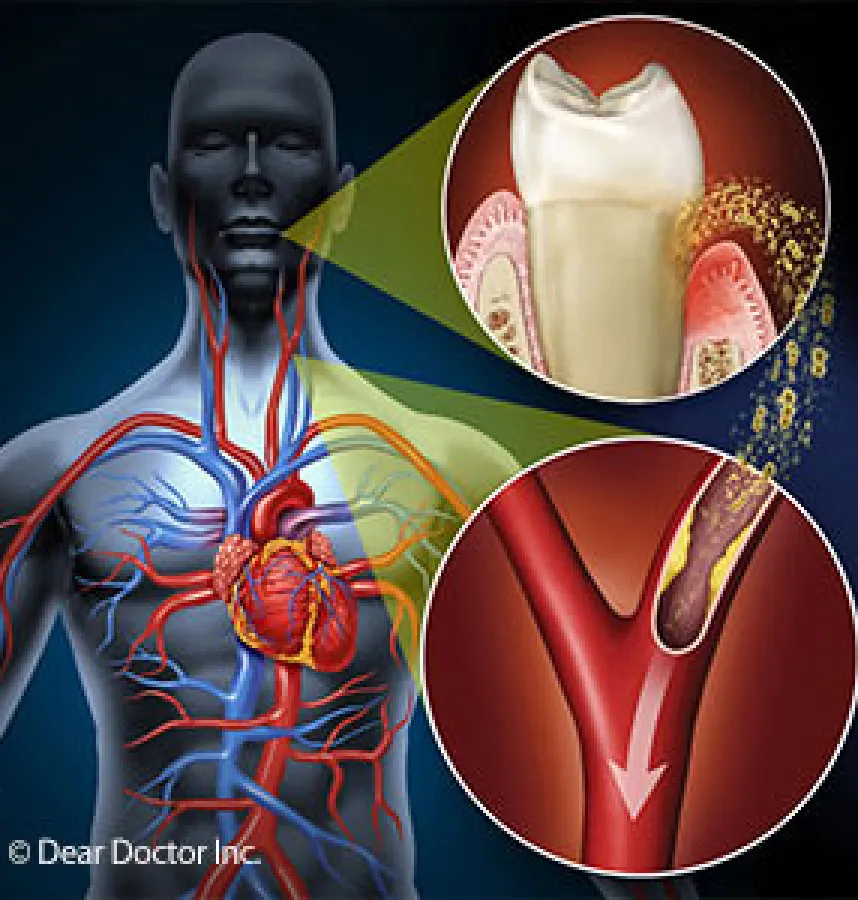
A disease happening in one part of your body doesn’t necessarily stay there. Even a localized infection could eventually affect your general health. Periodontal (gum) disease, a bacterial infection that damages gums, teeth and supporting bone, is a case in point.
There’s now growing evidence that gum disease shares links with some other serious systemic diseases. Here are 4 serious health conditions and how gum disease could affect them.
Diabetes. Gum disease could make managing diabetes more difficult—and vice-versa. Chronic inflammation occurs in both conditions, which can then aggravate the other. Diabetics must deal with higher than normal glucose levels, which can also feed oral bacteria and worsen existing gum disease. On the plus side, though, effectively managing both conditions can lessen each one’s health impact.
Heart disease. Gum disease can worsen an existing heart condition and increase the risk of stroke. Researchers have found evidence that chronic inflammation from gum disease could further damage already weakened blood vessels and increase blood clot risks. Treating gum disease aggressively, on the other hand, could lower blood pressure as much as 13 points.
Rheumatoid Arthritis. The increased inflammatory response that accompanies arthritis (and other diseases like lupus or inflammatory bowel disease) can contribute to a higher risk for gum disease. As with the other conditions previously mentioned, chronic inflammation from a gum infection can also aggravate arthritis symptoms. Treating any form of chronic inflammation can ease symptoms in both arthritis and gum disease.
Alzheimer’s disease. The links of Alzheimer’s disease to gum disease are in the numbers: a recent study found people over 70 who’ve had gum disease for ten or more years were 70% more likely to develop dementia than those with healthy gums. There is also evidence that individuals with both Alzheimer’s and gum disease tended to decline more rapidly than those without gum disease.
From the accumulating evidence, researchers now view gum disease as more than an oral problem—it could impact your total health. That’s why you should adopt a disease prevention strategy with daily brushing and flossing and regular dental visits (or whenever you notice puffy, reddened or bleeding gums). Stopping gum disease could provide you a health benefit well beyond preserving your teeth and gums.
If you would like more information on treating gum disease, please contact us or schedule an appointment for a consultation.

